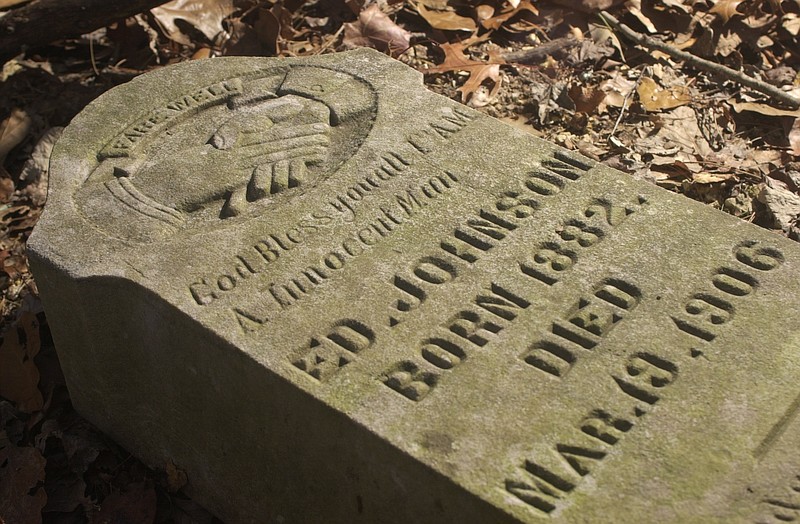The late, conservative radio talk show host Rush Limbaugh used to frequently invoke the term "words mean things" when he cited hypocritical, hyperbolic or hysterical comments from politicians.
His point was that politicians -- he was usually talking about Democrats, of course -- who made the comments to get attention, make a point or skewer an opponent often later said they didn't really mean what they said.
But words, Limbaugh insisted, have meaning.
The closer we've observed politics through the years, the more we believe he was right. Politicians may play down their remarks, but their previous and subsequent actions indicate they meant they said.
So it is that we have a hard time accepting the apology from Tennessee state Rep. Paul Sherrell, R-Sparta, who suggested during a House Criminal Justice Committee meeting Tuesday that the state consider adding "hanging by a tree" as a method of capital punishment.
He didn't say simply "hanging," a method of execution that is still on the books in three states, all three of which have abolished the death penalty (though the repeal may not apply retroactively in one of the states). He said "hanging by a tree."
Sherrell could not help but know that hanging by a tree was a frequent form of lynching used by racist individuals and groups on Black people to forego justice, settle a score or simply out of pure hate. It was abhorrently wrong and also a humiliating way to die -- being strung up on a tree for friends, family and the general public to see.
Even today, mentions of such hangings rightly invoke anger, fear and shame for many Americans.
Sherrell made his comment as an amendment to a bill on electrocution as a form of capital punishment was being considered. The amendment would have added death by a firing squad as an additional means of state execution.
(States like Tennessee have had difficulty obtaining the drugs used in lethal injections, which had become the primary method of execution in the states that employ the death penalty.)
"I think it's a very good idea," the Sparta lawmaker said, "and I was just wondering about, could I put an amendment on that it would include hanging by a tree, also?"
Perhaps out of embarrassment for their colleague, the other committee members went back to discussing the original amendment.
The reactions to Sherrell, not surprisingly, came quickly.
"In many parts of the South, lynchings took place in nearly every county as [they] exemplified racialized and anti-Black violence," said Gloria Sweet-Love, president of the Tennessee State Conference of the NAACP. "... It is a sad day in Tennessee politics when a lawmaker publicly announces that he wants to resurrect the lynching tree."
"A bill calling to expand the death penalty by firing squad, and even lynching, is deplorable, immoral and takes us back to the dark days of Jim Crow," said the Rev. Dr. Kevin Riggs, pastor of Franklin Community Church, whose words were distributed by the Southern Christian Coalition. "I'm appalled by the words of Representative Sherrell."
On Wednesday, the press secretary for the House Republican caucus released a statement from Sherrell.
"I regret that I used very poor judgment in voicing my support of a colleague's bill in the Criminal Justice Committee on Tuesday," he said. "My exaggerated comments were intended to convey my belief that for the cruelest and most heinous crimes, a just society requires the death penalty in kind. Although a victim's family cannot be restored when an execution is carried out, a lesser punishment undermines the value we place on protecting life. My intention was to express my support of families who often wait decades for justice. I sincerely apologize to anyone who may have been hurt or offended."
Sherrell's apology did not mention the many Black victims of "hanging by a tree," and he couched his remarks in support for families of victims of heinous crimes.
We agree that families of victims of such crimes often have to endure grief over and over again as they wait for justice or endure death penalty appeals, and sympathize with them, but a state with multiple options for capital punishment doesn't change the judicial waiting process.
In an era that has seen a rise of white supremacists, an increased hatred toward Jews and intensified persecution of LGBTQ individuals, it seems incumbent, especially on lawmakers, to be both honest and sensitive in their statements on controversial topics.
If legislators cannot be both honest and sensitive, we like the aphorism often wrongly attributed to Abraham Lincoln or Mark Twain: "Better to remain silent and be thought a fool than to speak and to remove all doubt."
Because words do mean things.
